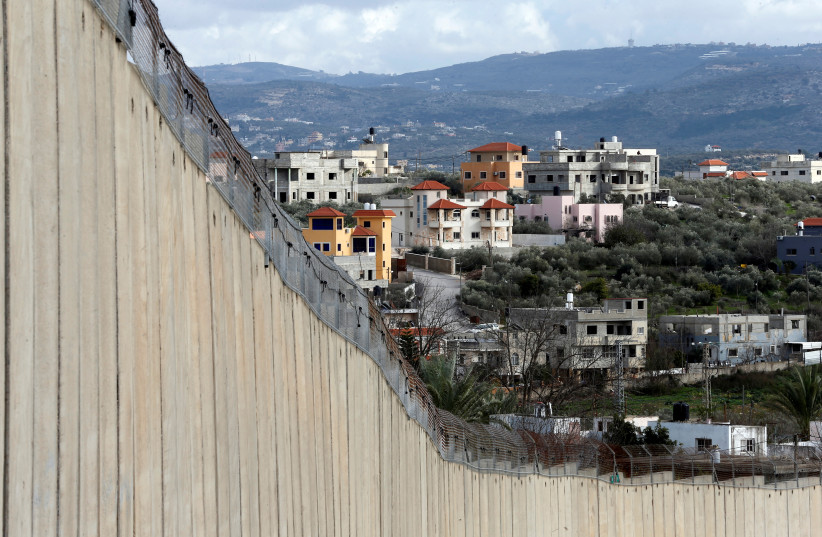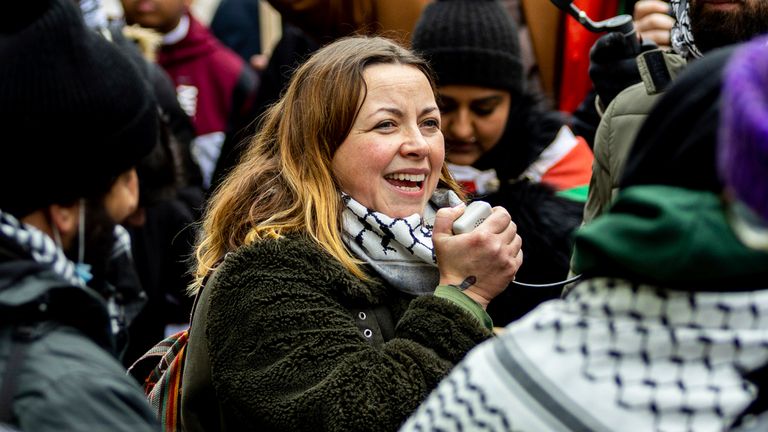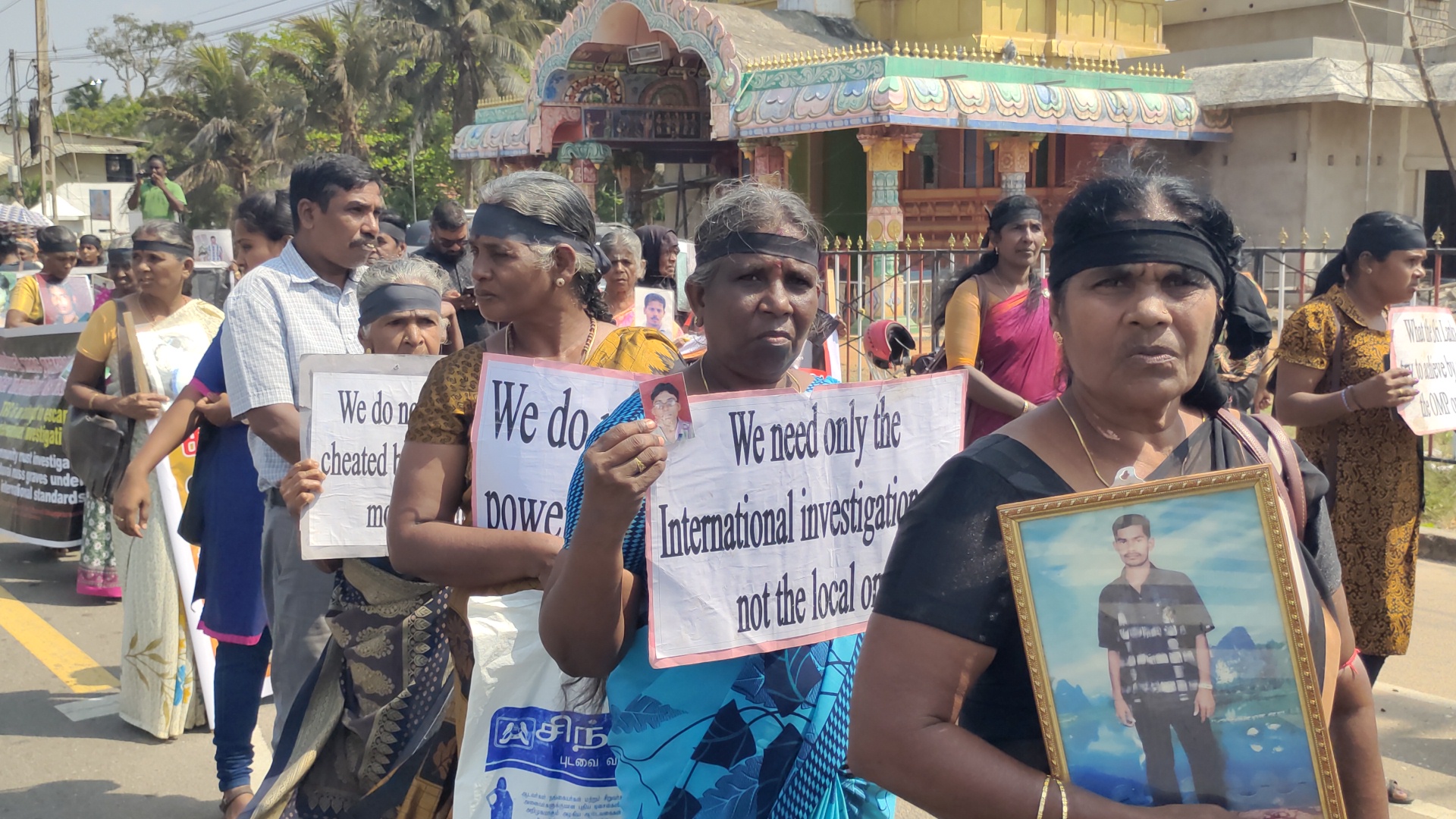By Kelly Ng
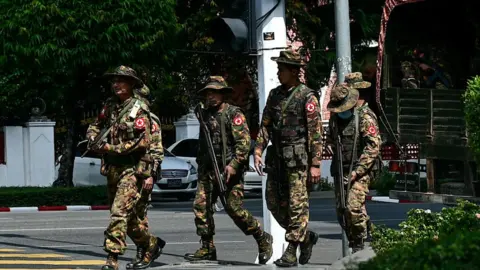
A deadly stampede outside a passport office that took two lives and unending lines outside embassies - these are just some examples of what has been happening in Myanmar since the announcement of mandatory conscription into the military.
Myanmar's military government is facing increasingly effective opposition to its rule and has lost large areas of the country to armed resistance groups.
On 1 February 2021, the military seized power in a coup, jailing elected leaders and plunging much of the country into a bloody civil war that continues today.
Thousands have been killed and the UN estimates that around 2.6 million people been displaced.
Young Burmese, many of whom have played a leading role protesting and resisting the junta, are now told they will have to fight for the regime.
Many believe that this is a result of the setbacks suffered by the military in recent months, with anti-government groups uniting to defeat them in some key areas.
"It is nonsense to have to serve in the military at this time, because we are not fighting foreign invaders. We are fighting each other. If we serve in the military, we will be contributing to their atrocities," Robert, a 24-year-old activist, told the BBC.
Many of them are seeking to leave the country instead.
"I arrived at 03:30 [20:30 GMT] and there were already about 40 people queuing for the tokens to apply for their visa," recalled a teenage girl who was part of a massive crowd outside the Thai embassy in Yangon earlier in February. Within an hour, the crowd in front of the embassy expanded to more than 300 people, she claims.
"I was scared that if I waited any longer, the embassy would suspend the processing of visas amid the chaos," she told the BBC, adding that some people had to wait for three days before even getting a queue number.
In Mandalay, where the two deaths occurred outside the passport office, the BBC was told that there were also serious injuries - one person broke their leg after falling into a drain while another broke their teeth. Six others reported breathing difficulties.
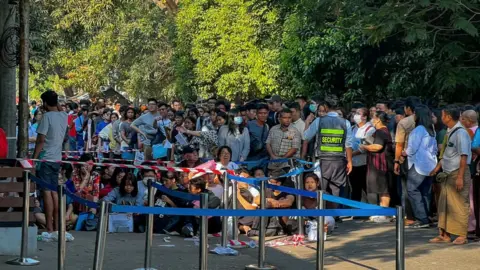
Justine Chambers, a Myanmar researcher at the Danish Institute of International Studies, says mandatory conscription is a way of removing young civilians leading the revolution.
"We can analyse how the conscription law is a sign of the Myanmar military's weakness, but it is ultimately aimed at destroying lives... Some will manage to escape, but many will become human shields against their compatriots," she said.
Myanmar's conscription law was first introduced in 2010 but had not been enforced until on 10 February the junta said it would mandate at least two years of military service for all men aged 18 to 35 and women aged 18 to 27.
Maj-Gen Zaw Min Tun, the spokesperson for the military government, said in a statement that about a quarter of the country's 56 million population were eligible for military service under the law.
The regime later said it did not plan to include women in the conscript pool "at present" but did not specify what that meant.
The government spokesperson told BBC Burmese that call-ups would start after the Thingyan festival marking the Burmese New Year in mid-April, with an initial batch of 5,000 recruits.
The regime's announcement has dealt yet another blow to Myanmar's young people.
Many had their education disrupted by the coup, which came on top of school closures at the height of the Covid-19 pandemic.
In 2021, the junta suspended 145,000 teachers and university staff over their support for the opposition, according to the Myanmar Teachers' Federation, and some schools in opposition-held areas have been destroyed by the fighting or by air strikes.
Then there are those who have fled across borders seeking refuge, among them young people looking for jobs to support their families.
Why India wants to fence its troubled Myanmar border
In response to the conscription law, some have said on social media that they would enter the monkhood or get married early to dodge military service.
The junta says permanent exemptions will be given to members of religious orders, married women, people with disabilities, those assessed to be unfit for military service and "those who are exempted by the conscription board". For everyone else, evading conscription is punishable by three to five years in prison and a fine.
But Mr Min doubts the regime will honour these exemptions. "The junta can arrest and abduct anyone they want. There is no rule of law and they do not have to be accountable to anyone," he said.
Wealthier families are considering moving their families abroad - Thailand and Singapore being popular options, but some are even looking as far afield as Iceland - with the hope that their children would get permanent residency or citizenship there by the time they are of conscription age.

Others have instead joined the resistance forces, said Aung Sett, from the All Burma Federation of Student Unions, which has a long history of fighting military rule.
"When I heard the news that I would have to serve in the military, I felt really disappointed and at the same time devastated for the people, especially for those who are young like me. Many young people have now registered themselves to fight against the junta," the 23-year-old told the BBC from exile.
Some observers say the enforcement of the law now reveals the junta's diminishing grip on the country.
Last October, the regime suffered its most serious setback since the coup. An alliance of ethnic insurgents overran dozens of military outposts along the border with India and China. It has also lost large areas of territory to insurgents along the Bangladesh and Indian borders.
According to the National Unity Government, which calls itself Myanmar's government in exile, more than 60% of Myanmar's territory is now under the control of resistance forces.
"By initiating forced conscription following a series of devastating and humiliating defeats to ethnic armed organisations, the military is publicly demonstrating just how desperate it has become," said Jason Tower, country director for the Burma programme at the United States' Institute of Peace.
Who are the rulers who executed Myanmar activists?
Mr Tower expects the move to fail because of growing resentment against the junta.
"Many youth dodging conscription will have no choice but to escape into neighbouring countries, intensifying regional humanitarian and refugee crises. This could result in frustration growing in Thailand, India, China and Bangladesh, all of which could tilt away from what remains of their support for the junta," he said.
Even if the military does manage to increase troop numbers by force, this will do little to address collapsing morale in the ranks. It will also take months to train up the new troops, he said.
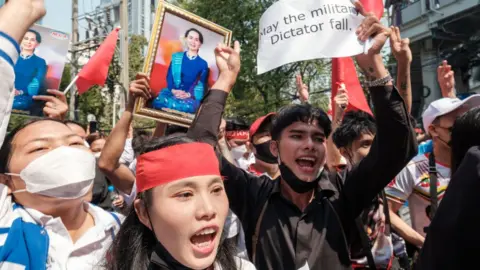
The junta had a long history of "forced recruitment" even before the law was enacted, said Ye Myo Hein, a global fellow at the Woodrow Wilson International Center for Scholars.
"So the law may merely serve as a facade for forcibly conscripting new recruits into the military. With a severe shortage of manpower, there is no time to wait for the lengthy and gradual process of recruiting new soldiers, prompting [officials] to exploit the law to swiftly coerce people into service," he said.
Even for those who will manage to escape, many will carry injuries and emotional pain for the rest of their lives.
"It has been really difficult for young people in Myanmar, both physically and mentally. We've lost our dreams, our hopes and our youth. It just can't be the same like before," said Aung Sett, the student leader.
"These three years have gone away like nothing. We've lost our friends and colleagues during the fight against the junta and many families have lost their loved ones. It has been a nightmare for this country. We are witnessing the atrocities committed by the junta on a daily basis. I just can't express it in words."
Additional reporting by BBC Burmese
